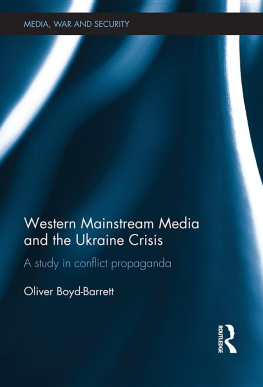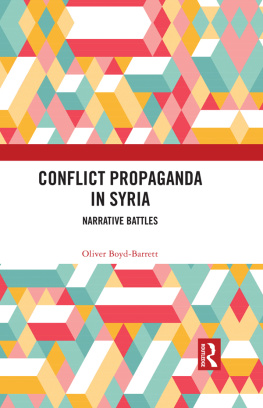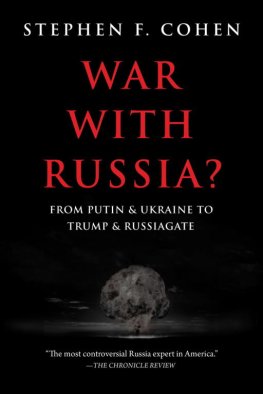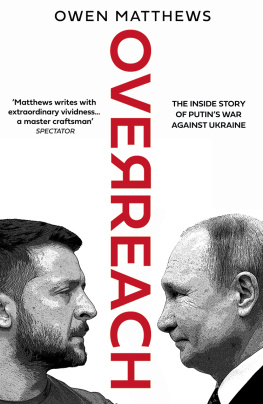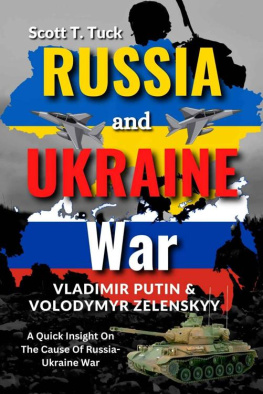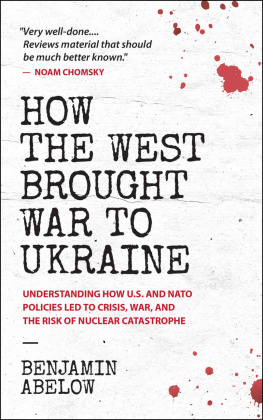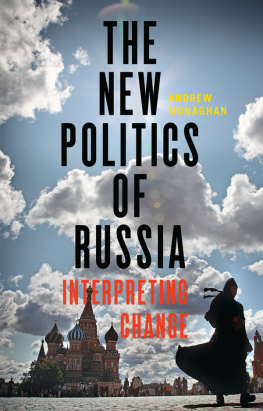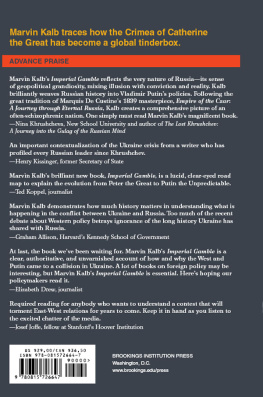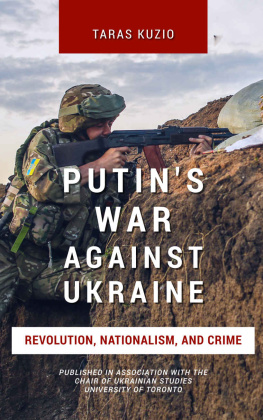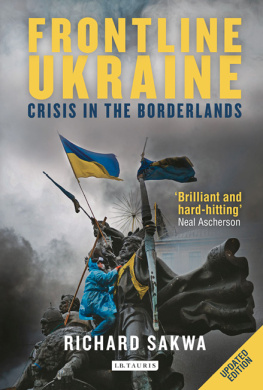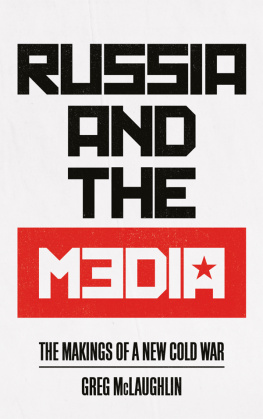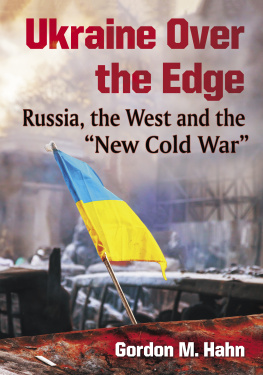Western Mainstream Media and the Ukraine Crisis
This book explores contemporary propaganda and mainstream Western news media, with reference to the Ukraine crisis.
It examines Western media narratives of the immediate causes of the crisis, the respective roles of those who participated in or otherwise supported the demonstrations of 20132014 including US- backed NGOs and rightist militia and the legitimacy, or otherwise, of the destabilization of the democratically elected Yanukovych government. It considers how the crisis was contextualized with reference to broader themes of competition for power over Eurasia and the Washington Consensus. It assesses accounts of the role of Russia and of ethnic Russian Ukrainians in Crimea, Odessa and the Donbass and traces how Western mainstream media went out of their way to demonize Vladimir Putin. The book deconstructs prevailing Western narratives as to the reasons for the shooting down of Malaysian Airways flight MH17 in July 2014, and counters Western media concentration on the issue of culpability for the attack with an alternative narrative of egregious failure to close down civilian air space over war zones. From analysis of these discourses, the book identifies principles of post-2001 Western conflict propaganda as these appeared to play out in Ukraine.
This book will be of much interest to students of propaganda, media and communication studies, Russian and Eastern European politics, security studies and IR.
Oliver Boyd- Barrett was formerly Director of the School of Media and Communications at Bowling Green State University, Ohio, USA, and now lectures at California State University. He is author of several books, including Hollywood and the CIA: Cinema, Defense and Subversion (Routledge 2011).
Media, War and Security
Series Editors: Andrew Hoskins
University of Glasgow
and
Oliver Boyd-Barrett
Bowling Green State University
This series interrogates and illuminates the mutually shaping relationship between war and media as transformative of contemporary society, politics and culture.
Global Terrorism and New Media
The post Al-Qaeda generation
Philip Seib and Dana M. Janabek
Radicalisation and the Media
Legitimising violence in the new media
Akil N. Awan, Andrew Hoskins and Ben OLoughlin
Hollywood and the CIA
Cinema, defense and subversion
Oliver Boyd-Barrett, David Herrera and Jim Baumann
Violence and War in Culture and the Media
Athina Karatzogianni
Military Media Management
Negotiating the front line in mediatized war
Sarah Maltby
Icons of War and Terror
Media images in an age of international risk
Edited by John Tulloch and R. Warwick Blood
Memory, Conflict and New Media
Web wars in post- socialist states
Edited by Julie Fedor, Ellen Rutten and Vera Zvereva
Violent Extremism Online
New perspectives on terrorism and the internet
Edited by Anne Aly, Stuart Macdonald, Lee Jarvis and Thomas M. Chen
Western Mainstream Media and the Ukraine Crisis
A study in conflict propaganda
Oliver Boyd-Barrett
Western Mainstream Media and the Ukraine Crisis
A study in conflict propaganda
Oliver Boyd-Barrett
First published 2017
by Routledge
2 Park Square, Milton Park, Abingdon, Oxon OX14 4RN
and by Routledge
711 Third Avenue, New York, NY 10017
Routledge is an imprint of the Taylor & Francis Group, an informa business
2017 Oliver Boyd-Barrett
The right of Oliver Boyd-Barrett to be identified as author of this work has been asserted by him in accordance with sections 77 and 78 of the Copyright, Designs and Patents Act 1988.
All rights reserved. No part of this book may be reprinted or reproduced or utilised in any form or by any electronic, mechanical, or other means, now known or hereafter invented, including photocopying and recording, or in any information storage or retrieval system, without permission in writing from the publishers.
Trademark notice : Product or corporate names may be trademarks or registered trademarks, and are used only for identification and explanation without intent to infringe.
British Library Cataloguing-in-Publication Data
A catalogue record for this book is available from the British Library
Library of Congress Cataloging-in-Publication Data
Names: Boyd-Barrett, Oliver, author.
Title: Western mainstream media and the Ukraine Crisis : a study in conflict propaganda / Oliver Boyd-Barrett.
Description: New York, NY : Routledge, [2017] | Includes bibliographical references and index.
Identifiers: LCCN 2016016766| ISBN 9781138677197 (hardback) | ISBN 9781315559681 (ebook)
Subjects: LCSH: Ukraine Conflict, 2014Mass media the conflict. | Mass mediaPolitical aspectsUkraine. | Information warfareUkraine. | Communication in politicsUkraine. | Mass mediaPolitical aspectsRussia (Federation) | Communication in politicsRussia (Federation) | Propaganda21st century. | Mass mediaPolitical aspectsHistory21st century. | Communication in politicsHistorycentury.
Classification: LCC DK508.852 .B68 2016 | DDC 947.7086dc23
LC record available at https://lccn.loc.gov/2016016766
ISBN: 978-1-138-67719-7 (hbk)
ISBN: 978-1-315-55968-1 (ebk)
Typeset in Times New Roman
by Wearset Ltd, Boldon, Tyne and Wear
To Jack, Irene, Audrey, Leah, Claudia, Francesca, Jonathan, Daniel, Andrea, John, Sofia and Dean. From love through love to love.
Competing narratives of the Ukraine Crisis 20142015
My purpose in this book is to explore the implications for an understanding of contemporary propaganda and the role played in it of mainstream Western news media (WMM) with particular reference to the crisis which emerged in Ukraine following the forced change of government in February 2014, leading shortly thereafter to an escalation of tension between the new government of Kiev and the Ukrainian (but substantially ethnic Russian) regions of Crimea (which was shortly to vote to be annexed to Russia) and Eastern Ukraine, and between the United States of America (USA), the European Union (EU) and Russia each of whom professed to have important security interests in the unfolding of the crisis.
The principal focus throughout the study is on coverage of the Ukraine crisis by WMM, especially the prestige news organizations of the USA and UK, and how this coverage was challenged directly or by implication, by alternative, mainly Western media as well as by Russian and other media. Russian media or for that matter the media of the Donbass or of Crimea during this period are equally open to investigation for the propaganda functions they undoubtedly supplied, and it is important that studies be undertaken to make such investigations. Russian media are not, however, my main or overriding interest. Over a number of different publications, I have sought to better understand the nature of the relationship between centers of power in the West and WMM, especially following the events of 9/11 and the ensuing war on terrorism. In previous publications, I have examined the WMM coverage of imperial wars that have been initiated on false or misleading pretexts. For reasons that will become clear, I believe that the Ukraine crisis was initiated and sustained to provide just such a pretext, should it be needed, in the context of escalating tensions between the nuclear powers of the USA and its allies in the European Union, in opposition to Russia and China.
I consider this topic to be important not only in itself but also because of how it might inform the study of communications in the context of a multi-polar world shared, on the one hand, between the USA and its traditional allies and vassal states and, on the other, the emerging alliances between the nations of the BRICS (Brazil, Russia, India, China and South Africa) economies. Notwithstanding a still powerful influence of US communications within the overall ambit of international media communication (Boyd-Barrett 2015), there is little evidence of a return flow from leading members of the BRICS alliance to the USA (e.g., Xie and Boyd- Barrett 2015). Analysis of media flows between the BRICS economies is in its infancy: extrapolating from what is known, such flows are likely to be relatively modest in volume, format range (e.g., exports of Brazilian telenovelas), and audience (e.g., exports of Indian and Chinese movies to Indian and Chinese diasporas).

